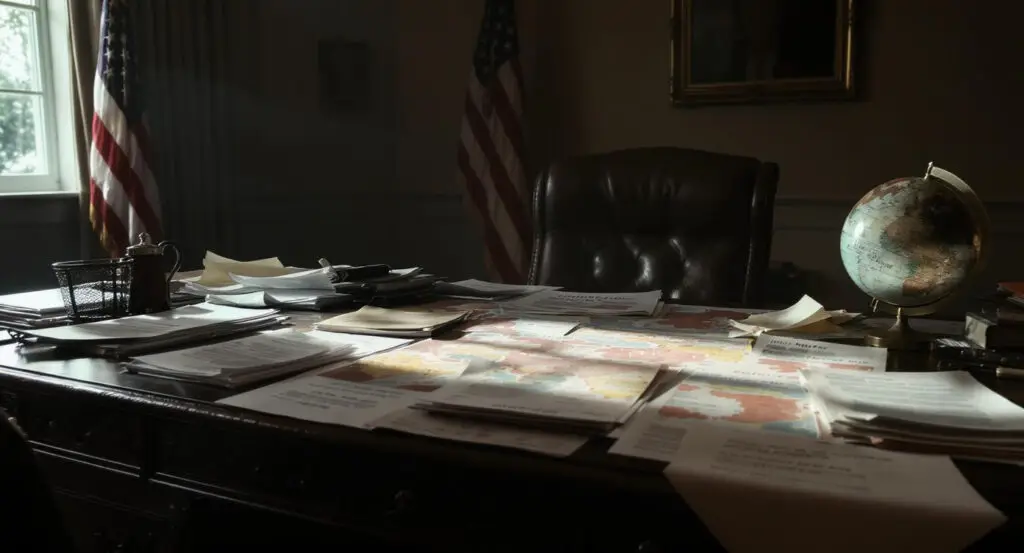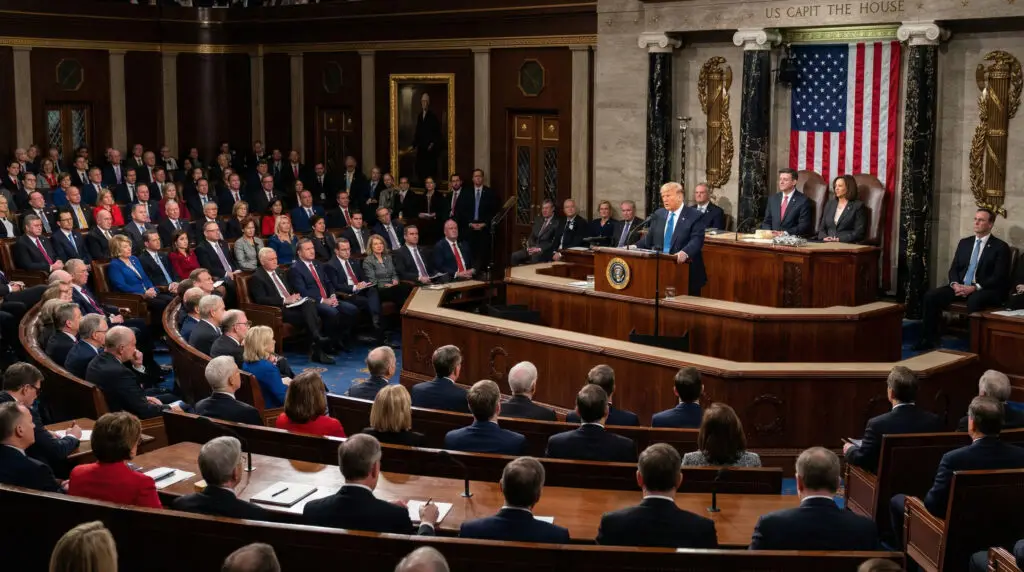Dispelling Speculation on Presidential Travel
The United States State Department on Tuesday dismissed widespread speculation regarding a planned trip to South America by Taiwan President Lai Ching-te, which reportedly included stopovers in the U.S. State Department spokesperson Tammy Bruce clarified that Lai’s travel plans were “hypothetical” because they had never been officially announced by Taiwan. “There have been no plans—travel plans for the president.
There’s been, as a result, nothing canceled,” Bruce stated during a news briefing. Her remarks directly addressed a Financial Times report published earlier that day, which claimed Lai’s planned visits to diplomatic allies Paraguay, Guatemala, and Belize in August were delayed or canceled due to U.S. President Donald Trump blocking a New York stopover, allegedly over concerns about ongoing trade talks with China.
Reiteration of Longstanding US Policy
Despite the media speculation, spokesperson Tammy Bruce firmly reiterated the U.S. position on transits by high-level Taiwanese officials. “I can tell you, though, a reiteration that transits by high-level Taiwan officials, including presidents, are fully consistent with our longstanding policy and practice,” Bruce affirmed. She emphasized, “This has not changed.” This statement underscores the continuity of U.S. policy, which has historically allowed Taiwanese presidents to transit through the United States, viewing it as a routine practice consistent with unofficial relations. The U.S. maintains that such transits are not indicative of a shift in its “One China” policy but are rather a reflection of its robust unofficial ties with Taiwan, which includes facilitating necessary travel for its leadership.
The Genesis of Travel Rumors
News of President Lai’s possible trip first emerged in mid-July. An AFP report on July 14 cited Paraguay President Santiago Pena stating at an investment forum that day that Lai would visit his country “in 30 days.” Two days later, Bloomberg News reported that Lai was planning stopovers in New York on August 4 and Dallas 10 days later, as part of a larger trip to Paraguay, Guatemala, and Belize.
However, a subsequent Bloomberg report on Monday indicated that planning for the trip was thrown into flux late last week when Taiwan reportedly could not secure the U.S. green light. In response to the circulating rumors, Presidential Office spokesperson Karen Kuo stated on Monday that Lai had no plans for an overseas visit in the near future, citing ongoing rehabilitation efforts in southern Taiwan after a recent typhoon and regional developments, including U.S. tariffs.
Taiwan’s Official Stance and Domestic Concerns
Following the U.S. State Department’s clarification, Taiwan’s Ministry of Foreign Affairs (MOFA) spokesperson Hsiao Kuangwei reiterated on Tuesday that President Lai had no overseas travel plan in the near future. This official stance from Taipei aligns with the U.S. statement that no formal plans were ever announced, thus nothing could be “canceled.”
The Presidential Office’s earlier statement highlighted domestic priorities, specifically the “ongoing rehabilitation efforts in southern Taiwan following a recent typhoon,” as a key factor influencing the president’s immediate travel schedule.
Additionally, “regional developments including the United States’ tariffs” were mentioned, suggesting a broader context of current affairs influencing the decision-making process regarding high-level international engagements. This emphasizes that Taiwan’s internal considerations play a significant role in its diplomatic agenda.
Political Reactions and US-China Dynamics
The Financial Times report and the subsequent U.S. clarification sparked political reactions. Nancy Pelosi, former U.S. House Speaker, commented on Facebook that if the report about Trump’s denial of Lai’s stopover were true, it would indicate the administration could be “bullied by China into silence when it came to Taiwan.” Pelosi emphasized a bipartisan commitment in Congress to supporting Taiwan’s democracy, aligning with the Taiwan Relations Act.
She asserted that the U.S. relationship with Taiwan serves global and regional security interests, economic interests by enabling commerce through the Taiwan Strait, and moral interests by supporting democracy. Meanwhile, U.S. Treasury Secretary Scott Bessent, who concluded trade talks with China in Stockholm, claimed that Taiwan’s president’s travel plans had “nothing to do with the Washington-Beijing negotiations,” stating, “We are very careful to keep trade and national security separate.”
The Taiwan Relations Act and US Commitments
The Taiwan Relations Act (TRA), enacted in 1979, forms the bedrock of unofficial U.S. relations with Taiwan. It mandates the U.S. to provide Taiwan with the means to maintain a sufficient self-defense capability and to consider any effort to determine Taiwan’s future by non-peaceful means a threat to the peace and security of the Western Pacific area and of grave concern to the United States.
Pelosi’s reference to the TRA underscores the bipartisan nature of U.S. support for Taiwan, emphasizing that this relationship is crucial for regional stability and democratic values. The U.S. policy of allowing high-level Taiwanese transits is interpreted within this framework as a consistent practice that supports Taiwan’s international space without implying formal diplomatic recognition, carefully balancing its “One China” policy with its commitment to Taiwan’s security and democratic governance.
Navigating Complex Diplomatic Waters
The recent speculation surrounding President Lai Ching-te’s travel plans and the subsequent U.S. clarification highlight the delicate and complex diplomatic waters surrounding Taiwan. The U.S. State Department’s firm reiteration that no plans were canceled, and that transits by high-level Taiwanese officials are consistent with longstanding policy, aims to dispel misinformation and reaffirm continuity.
Despite political interpretations and ongoing U.S.-China trade dynamics, both Washington and Taipei have emphasized that no formal travel schedule was ever in place, attributing the lack of immediate overseas visits to domestic priorities and existing policy. This episode underscores the constant scrutiny and sensitivity surrounding Taiwan’s international engagements and the careful balancing act required in its relationships with key global players.
Read more: EU-U.S. Deal Fuels Rally in Tech Stocks, Says Analyst Amit Kukreja






















